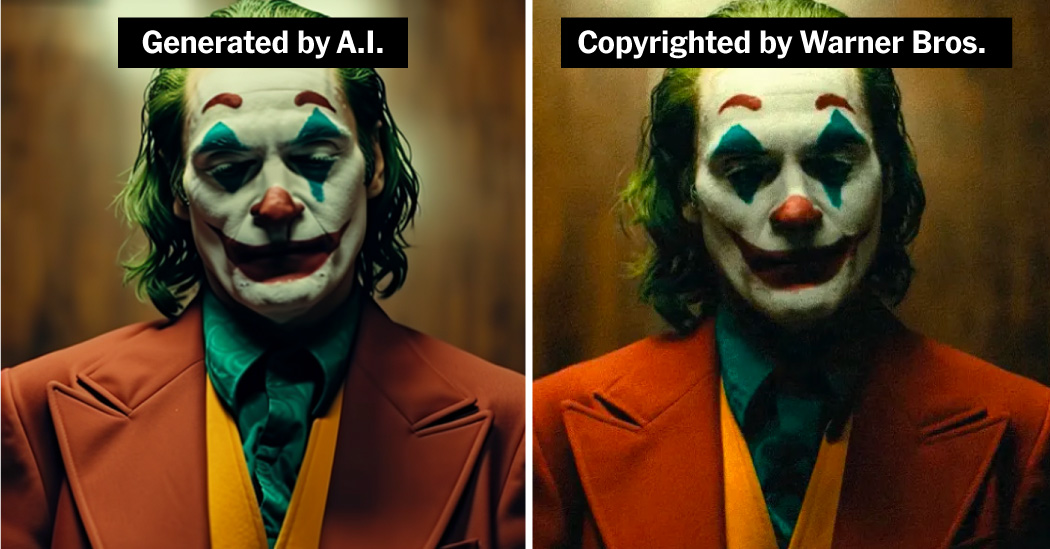We Asked A.I. to Create the Joker. It Generated a Copyrighted Image.::Artists and researchers are exposing copyrighted material hidden within A.I. tools, raising fresh legal questions.
“Generate this copyrighted character”
“Look, it showed us a copyrighted character!”
Does everyone that writes for the NYTimes have a learning disability?
The point is to prove that copyrighted material has been used as training data. As a reference.
If a human being gets asked to draw the joker, gets a still from the film, then copies it to the best of their ability. They can’t sell that image. Technically speaking they’ve broken the law already by making a copy. Lots of fan art is illegal, it’s just not worth going after (unless you’re Disney or Nintendo).
As a subscription service that’s what AI is doing. Selling the output.
Held to the same standards as a human artist, this is illegal.
If AI is allowed to copy art under copyright, there’s no reason a human shouldn’t be allowed to do the same thing.
Proving the reference is all important.
If an AI or human only ever saw public domain artwork and was asked to draw the joker, they might come up with a similar character. But it would be their own creation. There are copyright cases that hinge on proving the reference material. (See Blurred Lines by Robin Thick)
The New York Times is proving that AI is referencing an image under copyright because it comes out precisely the same. There are no significant changes at all.
In fact even if you come up with a character with no references. If it’s identical to a pre-existing character the first creator gets to hold copyright on it.
This is undefendable.
Even if that AI is a black box we can’t see inside. That black box is definitely breaking the law. There’s just a different way of proving it when the black box is a brain and when the black box is an AI.
It’s not selling that image (or any image), any more than a VCR is selling you a taped version of Die Hard you got off cable TV.
It is a tool that can help you infringe copyright, but as it has non-infringing uses, it doesn’t matter.
Then who created this image in your view?
That’s irrelevant, the issue is whether the machine is committing a crime, or the person
Machines aren’t culpable in law.
There is more than one human involved in creating and operating the machine.
The debate is, which humans are culpable?
The programmers, trainers, or prompters?
The prompters. That is easy enough. If I cut butter with a knife it’s okay, if I cut a person with a knife - much less so. Knife makers can’t be held responsible for that, it’s just nonsense.
If you try to bread with an autonomous knife and the knife kills you by stabbing you in the head. Is it solely your fault?
If someone copies a picture from a cartoon who created it?
What point do you think youre making? The answer to this question supports their point.



